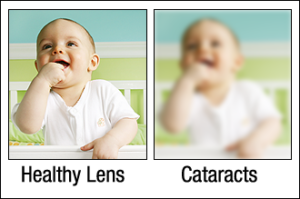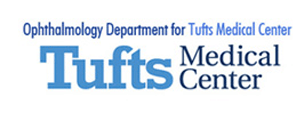Cataracts are one of the most common age-related eye conditions. Just being over 40 puts you at risk for cataracts.
They develop on the eye’s natural lens, making it cloudy and harder to see through. They also develop very slowly over time, so you may not even notice you have them at first.
But as cataracts become more advanced over time, they can significantly impair your vision and your ability to see. If you’re over 40 and have visual problems, it could be because of cataracts.
The only way to know for sure if you have cataracts is to have your eyes examined by your eye doctor. But there are still some signs you can look out for.
Keep reading to find out 7 of the most obvious signs that you may have cataracts!
1. Blurry Vision

When your natural lens is cloudy, it’s like seeing through a foggy window pane. Like a window, your natural lens is supposed to be clear so you can see through it.
But when you have cataracts, it becomes more opaque, making it harder to see through. Your vision may only be a little blurry at first. You may find that some of this blurriness may appear to be corrected by a stronger eyeglass prescription.
But the more developed your cataracts become, the blurrier your vision will be, and the less a stronger prescription will help.
2. Glare and Halos
Cataracts often make halos appear around light sources. They also increase the glare you see around lights and light sources.
As your cataracts become more advanced, halos appear more prominent, and glare becomes more intense.
3. The World Looks Less Vibrant

Cataracts can affect the way you see color. They make it harder to see the contrast between colors and can give a yellowish, muddy tint to everything.
This symptom is hard to notice since it only worsens gradually. Still, you can sometimes tell when you have more trouble identifying different colors because they all start to look muddy and less vibrant.
4. Poor Low Light Vision
Cataracts affect your night vision, making it harder to see in low light. You may need direct light to see, especially when working on a fine-focus task like reading or sewing.
It may seem like this symptom is simply due to worsening vision from presbyopia, which many people over 40 also have. But presbyopia only makes it hard to focus up close, meaning it doesn’t affect your night vision.
If more light helps you see much better up close, it’s likely because you have cataracts. You can also have presbyopia and cataracts at the same time.
5. Trouble Driving at Night

Because of poor night vision and glare from headlights and street lamps, advanced cataracts can make it very hard to drive at night. Cataracts also increase your light sensitivity, so the glare from headlights can feel like you’re blinded.
If you struggle driving at night, you should stop driving alone until your eyes are examined and treated appropriately.
6. Self-Isolation Due to Vision Problems
When you struggle to see well, it can affect your self-confidence. You may feel embarrassed or ashamed that you can’t be as independent as you once were.
Poor vision can also make it more challenging to physically leave your home, especially if you can’t drive after dark. If your vision is so bad that you often don’t feel like leaving the house, it could be because you have advanced cataracts.
7. Injury Due to Vision

Ideally, you should have your cataracts diagnosed and treated before an accident because of impaired vision. But sometimes, it’s hard to accept how bad your vision is until you see real consequences.
If you injure yourself by tripping and falling because you can’t see well enough to avoid an obstacle, it’s a sign that you could have cataracts. It’s also a sign that you should see an eye doctor and have them examine your eyes immediately so they can diagnose and treat you to prevent further injury.
Get Help
If these signs sound familiar, you should make an appointment to examine your eyes as soon as possible. But you should have your cataracts diagnosed before you even experience any symptoms.
Seeing an eye doctor every 2-4 years, once you turn 40, can help you have your cataracts diagnosed early before they cause any noticeable symptoms. That way, your eye doctor can monitor their progress and recommend treatment when necessary.
The only way to treat cataracts is by having cataract surgery. Although you can temporarily treat cataracts by using more light or changing your prescription, these are only temporary methods.

Cataract surgery will effectively treat your cataracts and ensure you can see clearly. Cataract surgery completely removes your cataracts and can restore your vision.
Because cataracts develop so slowly, most cataract surgeons only recommend the procedure once cataracts begin affecting your quality of life. Can you no longer do the things you love due to impaired vision?
Do you struggle to complete simple tasks like making yourself dinner or doing laundry? In addition to the signs listed here, these often indicate that it’s time to consider cataract surgery because your daily life is affected.
Talk to your eye doctor to determine if you have cataracts and if you need cataract surgery. Are you ready to change your life for the better?
Learn more about cataracts and if you may need cataract surgery by requesting your appointment at New England Eye Center in Boston, MA, today! Stop living with cataracts and start living your life again!




